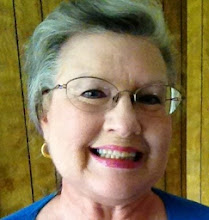I rarely watch horse movies, or horse shows in general,
because I deplore movies that make me cry. The same goes for most Chick Flicks.
With that said, I recorded it on TV a couple of weeks ago and we finally
watched it last night.

I had declined to watch this one, because as I suspected, it was almost entirely complete fantasy where horses are concerned. Two things about it struck me as very true however: (1) the instant bond between the boy Albert and the horse he names Joey; and (2) the fact that horses inspire people to great feats of folly as well as heroism. Unfortunately, most of the rest is anthropomorphic hogwash. If you loved the movie, that’s great! Just know that it’s pretty far off the mark where reality is concerned.
Horses do not understand what you say, unless you have
taught them to obey commands, and that only because they associate the command
with an activity. But, they are very sensitive creatures, and they can read
human emotions through their highly developed sense of smell and their
understanding of body language—so much so that many people believe they are
telepathic. Like elephants, horses don’t forget, either. It is thought they
remember things as flash backs, so their memories are photographic. When Albert
teaches Joey to come to his particular whistle, I knew that it would save one
of their lives, and it does indeed.
Then there’s the incident where Joey runs through many
fences of barbed wire ending where he flips end over end and crashes in the
midst of the battlefield between the British and the Germans. That entire scene
is a complete and utter fantasy! Joey would have been cut to ribbons by the
very first fence, and the only thing left at the end would have been a heap of
screaming hamburger that someone would hopefully put out of its misery. Barbed
wire is a hateful thing, and there are not enough words to express how much I
detest it.
Like Albert though, I have experienced that instant bond
with a horse. The first time I saw my mare Hadarah was in her mother’s stall as
a two-day-old filly. She peeked out at me between the boards of the stall wall,
and I knew that somehow she would be mine, and I think she knew it too. The
lady who bred her did not first sell her to me, however. I was only fortunate
enough to be able to buy her when her breeder realized she was being abused by
her first owner and repossessed her. Even so, I didn’t have the money and
bought her on a contract at $200 per month for two years. That was a real
stretch for me, since I was only making (if I recall correctly) about $9.50 per
hour in those days. For me, it was a dream come true, because I had wanted an
Arabian horse ever since I was old enough to know the difference.
As Joey was for Albert, Hadarah has been more a friend than
a pet or work animal. Caring for her put real discipline in my life, and she
has never failed to lift my spirits, regardless of how depressed or angry I
might be. She has never had to do any hard labor, such as plow a field, but she
has had to learn to be a reliable companion and to do the numerous activities
associated with pleasure riding. We trust each other, which is saying a great
deal, when it comes to horses; and if horses can love people, then I believe
Hadarah loves me. I certainly do love her, and she’s my very best friend! Here
is a poem I wrote about her, published in my book of poetry Howling at the Dark Side of the Moon:*
HADARAH
I see through your eyes grey pony,
Little Arab mare, twenty-one winters gone.
You feel the year turning,
The Wheel of Life moving onward.
Deep inside, you know
Winter’s coming.
You’ve never any blame
For things I’ve left undone, and
Always a glad whinny when I come,
Asking for a treat
(No thought of my owing
Or your deserving).
You never wonder
What tomorrow may bring.
You are the soul of patience,
Acceptance, understanding, and trust,
And I’m blessed.
You’ve taught me so much more
Than ever I taught you.
I gave lessons in collection,
But you
taught me balance.
*Trafford Publishing, 2011, p. 79.

No comments:
Post a Comment